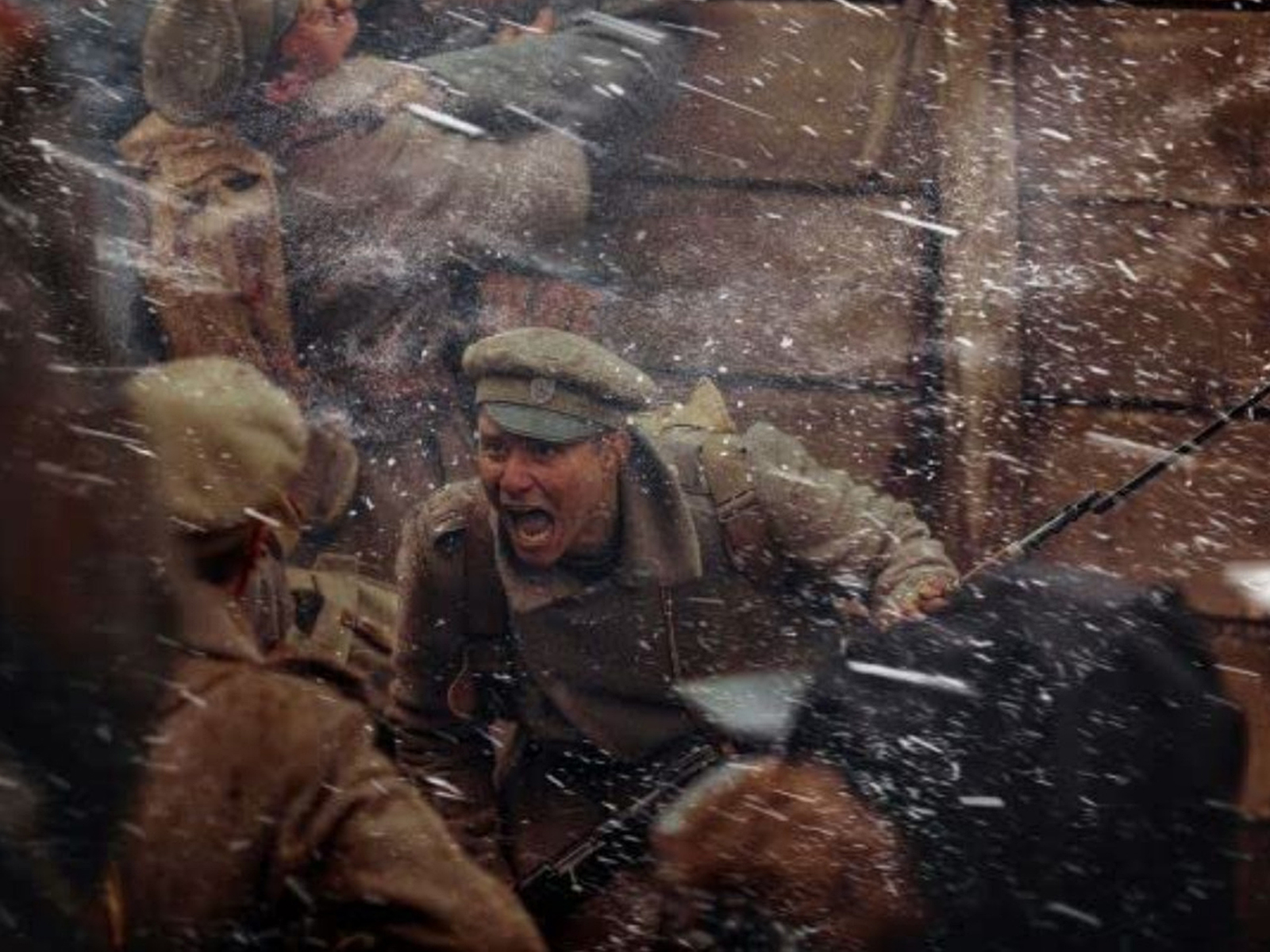
- Golden Globe Awards
Blizzard of Souls (Latvia)
Latvian director Dzintars Dreibergs’ feature Blizzard of Soulsalso known in some countries as The Rifleman, recently won a top National Film Award for best Latvian film of the year. As of today, the picture has been seen by more than 250,000 spectators just in its home country, becoming the biggest Latvian hit in 30 years.
Arturs Vanags (Oto Brantevics) is almost seventeen when German troops begin to advance into Latvia during World War I. The young peasant boy tries to enlist in the Latvian unit of the Russian Imperial Army, being full of youthful desire to fight, patriotic pride, and an urge to take revenge for a German attack on a family member. He’s too young to be enlisted, but his father (Martins Vilsons) who is far beyond drafting age, uses his previous military experience to get them both permissions to serve.
They fight bravely for the cause which has nothing to do with Latvian national aspirations for independence. After suffering successive German, Polish, Swedish, and, finally Russian rules until the revolution of 1917, Latvia finally got its independence in 1920 for only 20 years before the Soviets grabbed it again in 1940. Then the Nazis occupied it in 1941 before being defeated by the Soviets who ruled Latvia till the break of the Soviet Union in 1991 when Latvia fully regained its independence.
This is important to know in order to better understand the fates of Latvian riflemen who, at one point, were one of the stalwarts of the new Bolshevik regime hoping that the “people’s power” would bring freedom to their beloved homeland. But soon the true nature of the Bolshevik regime comes to bedevil Arturs and his fellow Latvian riflemen. Obsessed with ideology, the army’s communist commanders begin to eliminate everybody whom they deem a danger to their goals. Arturs receives the order to shoot a friend. This scene has a special meaning for Latvians who are familiar with the novel’s author Grins’s own fate. He returned home in 1919 to his newly almost independent homeland. In 1940, when the Soviets invaded Latvia, they arrested Grins, whose novel had been banned in the Soviet Union. The author was deported to a Soviet prison where – just twenty-two years after luckily surviving WWI – he was executed. This fact might escape the viewer, which is not familiar with Latvian history or literature but to know it makes a better understanding of the tragedy of Souls gone with the Blizzard of History.
The film is based on the semi-autobiographical war novel by Aleksandrs Grins, an esteemed Latvian writer, and carries a timeless anti-war message. Fellow Latvian director and Latvian Academy of Culture professor Dāvis Sīmanis declared Blizzard of Souls to be an “exceptional attestation to the futility of war that is timely in today’s world when there are military conflicts arising in several locations.” In turn, Latvian film historian Dita Reituma pointed out the film’s ability to “achieve a feeling of existential insanity”.